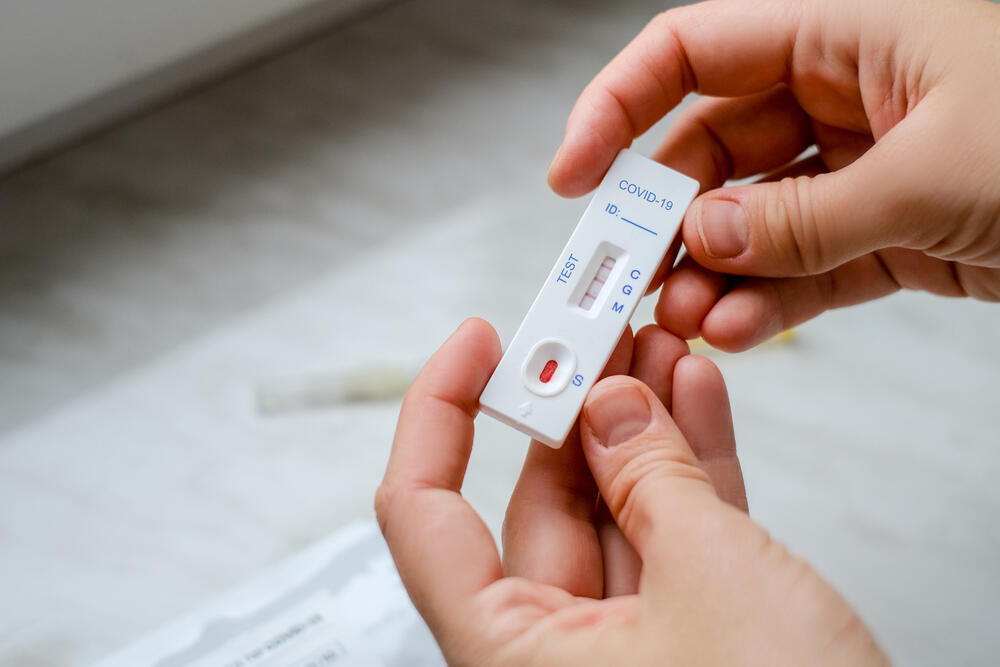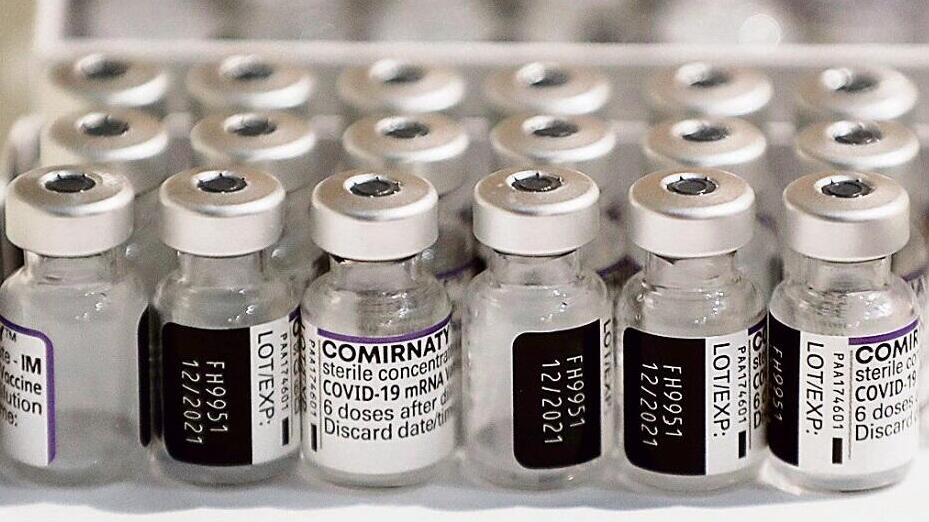Getting your Trinity Audio player ready...
Pfizer, Moderna and Novavax have completed preparations for the marketing of their new COVID-19 vaccines, which target new variants currently spreading around the world, including the dominant Eris variant.
More stories:
The new vaccines are set to replace the existing ones in the coming weeks, in Israel as well.
4 View gallery


The new COVID-19 vaccines target new variants currently spreading around the world, including the dominant Eris variant
(Photo: Shutterstock)
The Health Ministry usually follows the approvals granted by the U.S. Food and Drug Administration (FDA) and the U.S. Centers for Disease Control and Prevention (CDC) and their recommendations. The recommendations for the new COVID-19 vaccines suggest that they be administered alongside flu vaccines at the same visit to the clinic, with each vaccine being given in a separate arm.
At-risk populations, including the elderly, pregnant women and vaccine-hesitant individuals will be given priority. Israel is expected to launch its vaccination campaign around the fall High Holidays.
Importance of pregnancy and vaccination
New studies show it's especially important for pregnant women to get vaccinated against COVID-19.
American researchers found antibodies against COVID-19 in the placenta and umbilical cord of women who were vaccinated against the virus. Their study adds to previous evidence indicating that infants born to vaccinated mothers are protected from COVID-19 infection.
This new study, funded by the American Academy of Allergy, Asthma & Immunology, was conducted in June 2021 when there wasn't sufficient data on the effects of vaccination on pregnant women.
4 View gallery


Israel is expected to launch its vaccination campaign around the fall High Holidays
(Photo: Shutterstock)
The study followed 500 pregnant women and their newborns – 167 of whom received two doses of the COVID-19 vaccine during pregnancy, while 73 also received a booster. The vaccinated group developed antibodies against various strains of COVID-19, including Delta and Omicron.
These antibodies were present not only in the placenta but also in the cord blood, which likely provides some level of protection to infants during the critical period when they’re vulnerable to severe COVID-19 illness but are too young to be immunized.
Among women who received a booster, there were significantly more COVID-19 antibodies present in both their blood and cord blood, which likely enhanced the immune protection for both mothers and infants.
According to Professor Tal Biron, chairwoman and director of the Obstetrics and Gynecology Division at Meir Medical Center: "COVID-19 is still present, so we need to remain alert and consider vaccinating pregnant women for their own protection and the protection of their unborn children.”
“There are scientific publications proving that pregnant women who were vaccinated during pregnancy, especially in the second trimester, pass on antibodies to their fetuses, thereby also providing them with vaccination," she added.
4 View gallery


Studies show that infants born to vaccinated mothers are protected from COVID-19 infection
(Photo: EPA)
The new variant is spreading faster
Recently, there have been reports of an increase in the number of COVID-19 cases around the world, but the World Health Organization (WHO) claims that the current level of risk remains low.
The latest variant that has been reported is EG.5, which is linked to at least 17% of infections in the United States.
The true number is likely higher, but it's difficult to determine, as the number of institutional tests worldwide has significantly dropped. Patients are conducting self-tests or none at all, and are not reporting their illnesses. The new variant has also been reported in China, South Korea, Japan, the UK, Thailand, Canada and other countries.
EG.5 is a descendant of Omicron, which remains the most prevalent variant of the coronavirus globally and has become more dominant in the United States than other strains. It has been nicknamed Eris on social media, but the World Health Organization has yet to properly name the variant.
4 View gallery


EG.5 is a descendant of Omicron, which remains the most prevalent variant of the coronavirus globally and has become more dominant in the US
(Photo: Shutterstock)
Virologists have determined that, unlike other Omicron variants, the new variant is better at evading the immune system and the antibodies that work to protect the body from it. It also spreads faster than other variants, although not significantly so.
The symptoms of this variant are similar to those of regular COVID-19: runny nose, congestion, dry cough, fever, chills, shortness of breath, fatigue, muscle aches, loss of smell or taste and headaches. There is no evidence to suggest the new variant causes a more severe illness.


